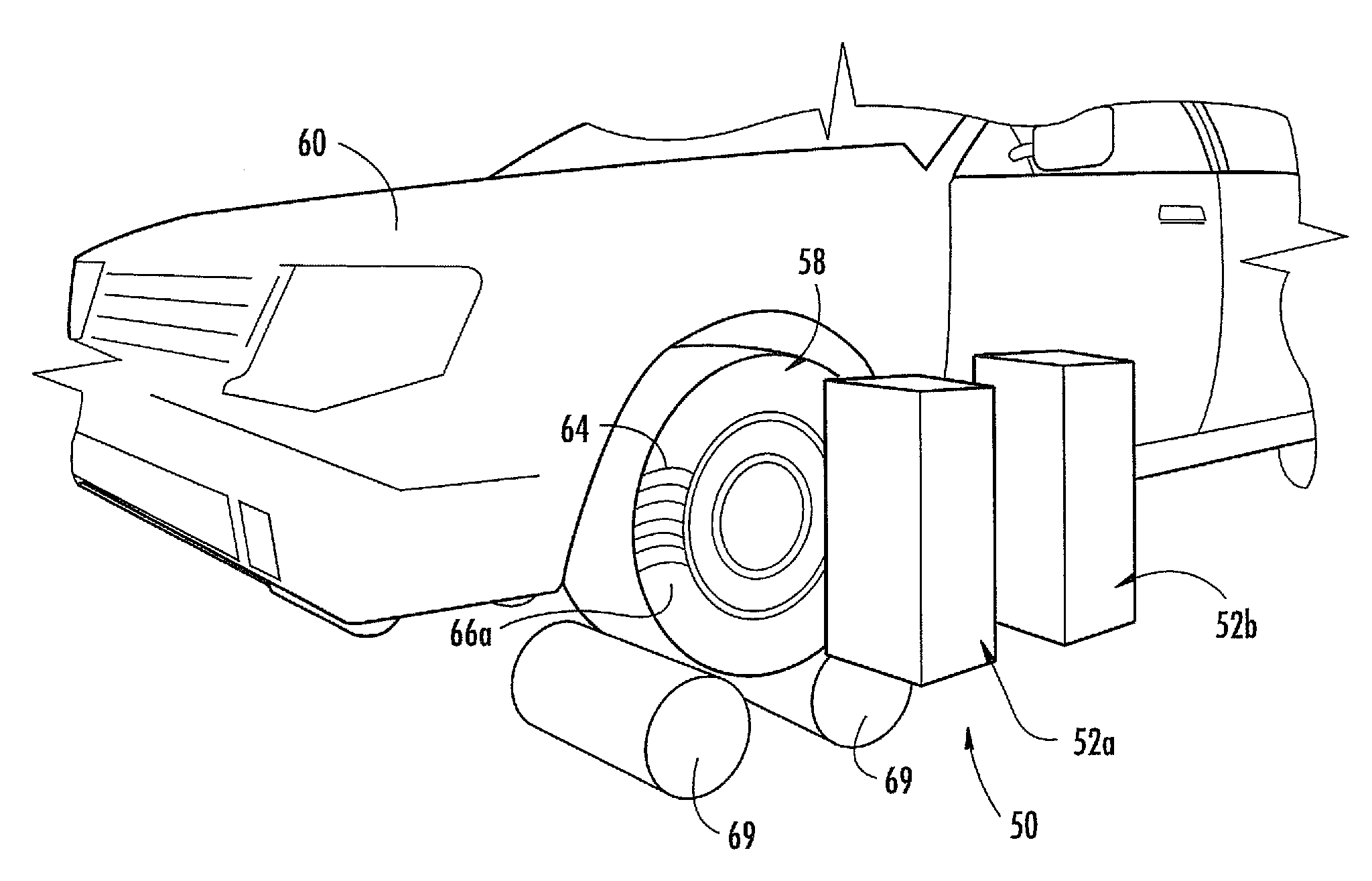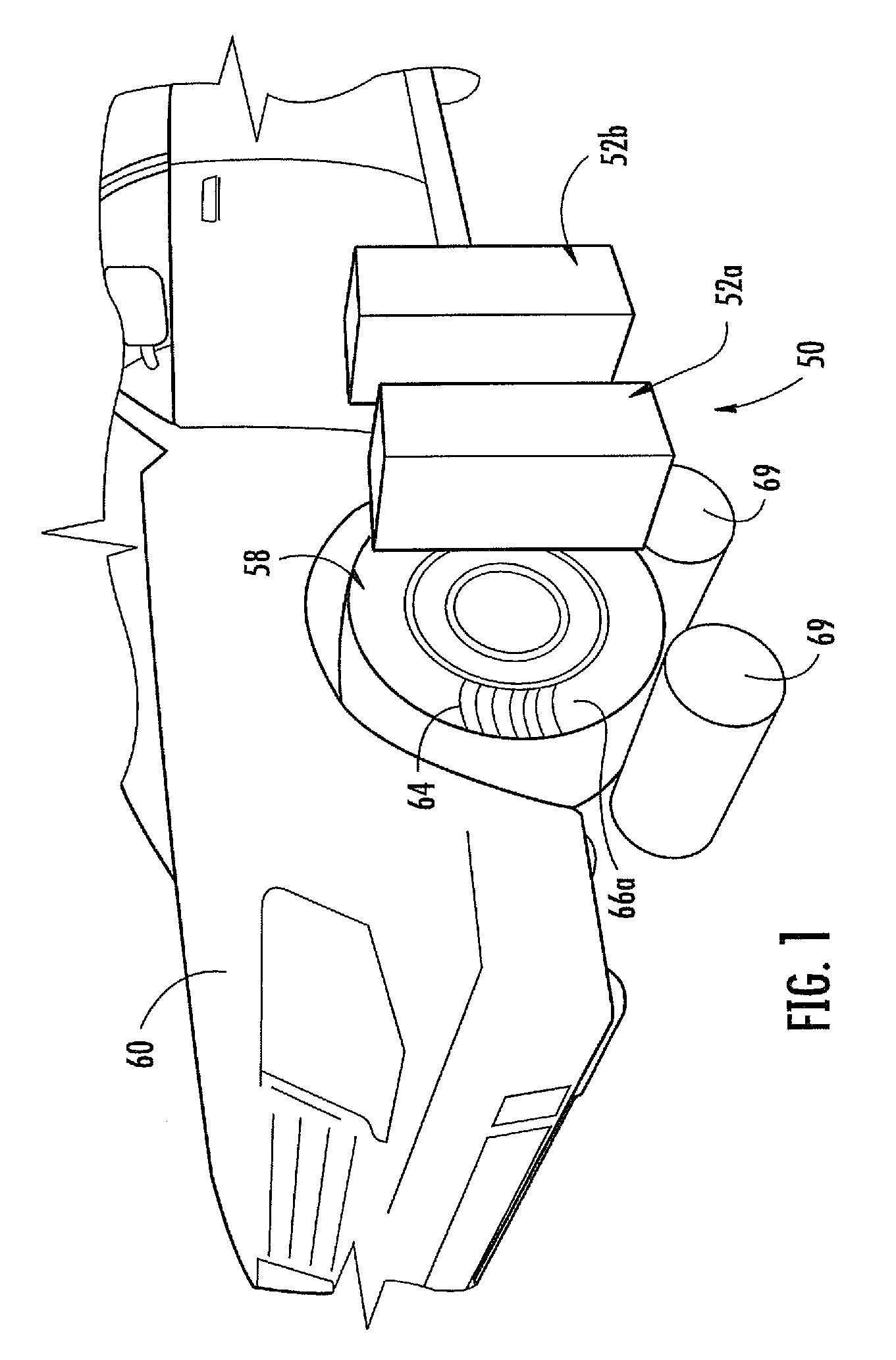Non contact wheel alignment sensor and method
a sensor and non-contact technology, applied in the field of measurement equipment, can solve the problems of cumbersome, time-consuming, labor-intensive, and less accurate than desired, subject to placement error and wear, and prior known direct measurement methods were cumbersome, time-consuming, and often labor-intensiv
- Summary
- Abstract
- Description
- Claims
- Application Information
AI Technical Summary
Benefits of technology
Problems solved by technology
Method used
Image
Examples
Embodiment Construction
[0038]The present invention will now be described with reference to the accompanying figures, wherein the numbered elements in the following written description correspond to like-numbered elements in the figures. A measurement system or apparatus 50, which in the illustrated embodiment of FIG. 1, comprises a pair of non-contact wheel alignment sensors 52a, 52b is used for determining wheel alignment characteristics such as toe, camber, caster, steering axis inclination (SAI), as well as the wheel center, axis of symmetry, and rear thrust angle. FIG. 2 illustrates the toe angle 54 to be determined and FIG. 3 illustrates the camber angle 56 to be determined. Although only one tire and wheel assembly 50 is illustrated in FIG. 1, it should be understood that a measurement system comprising two sensors 52a, 52b may be placed at either of the front or rear tire and wheel assemblies or at each of the four tire and wheel assemblies of vehicle 60. Alternatively, a single sensor 52 may be us...
PUM
 Login to View More
Login to View More Abstract
Description
Claims
Application Information
 Login to View More
Login to View More - R&D
- Intellectual Property
- Life Sciences
- Materials
- Tech Scout
- Unparalleled Data Quality
- Higher Quality Content
- 60% Fewer Hallucinations
Browse by: Latest US Patents, China's latest patents, Technical Efficacy Thesaurus, Application Domain, Technology Topic, Popular Technical Reports.
© 2025 PatSnap. All rights reserved.Legal|Privacy policy|Modern Slavery Act Transparency Statement|Sitemap|About US| Contact US: help@patsnap.com



